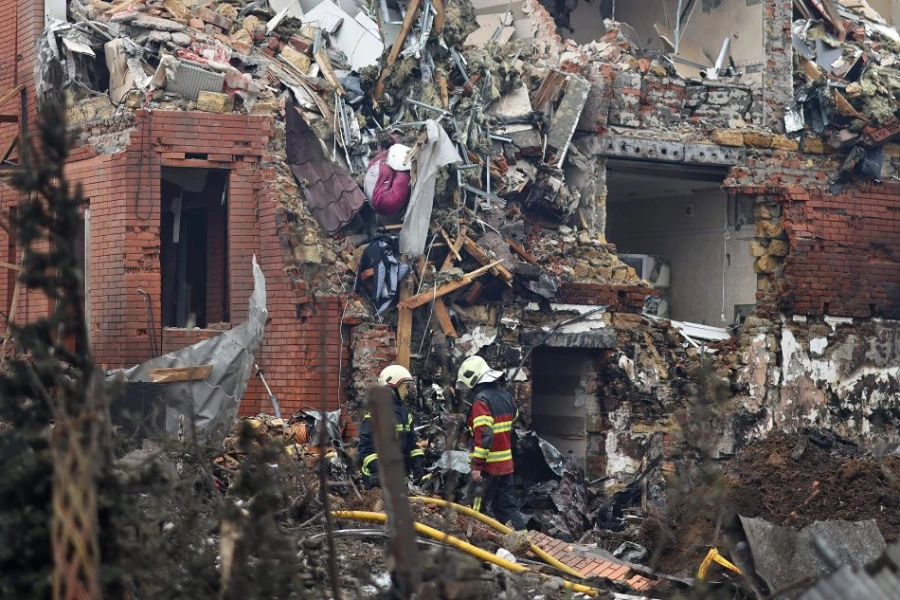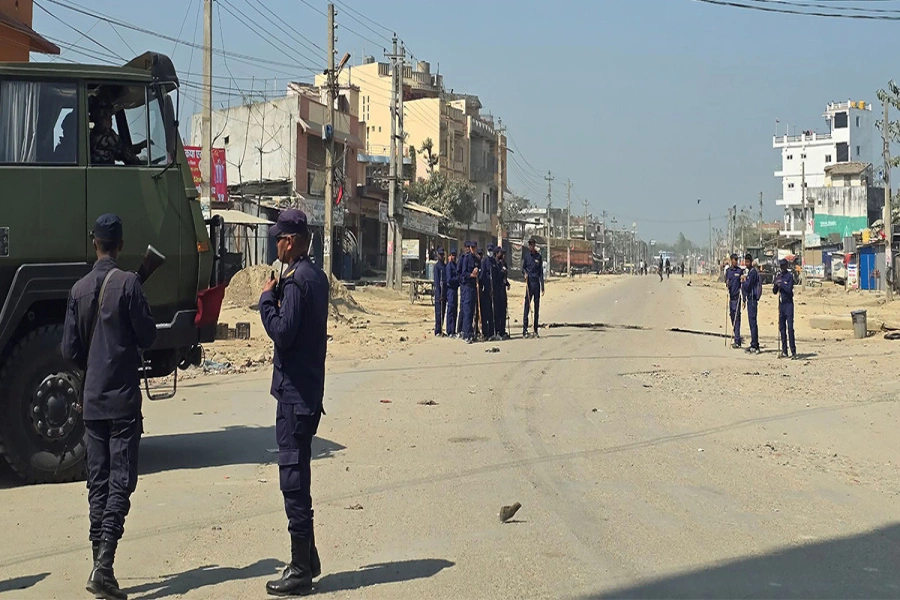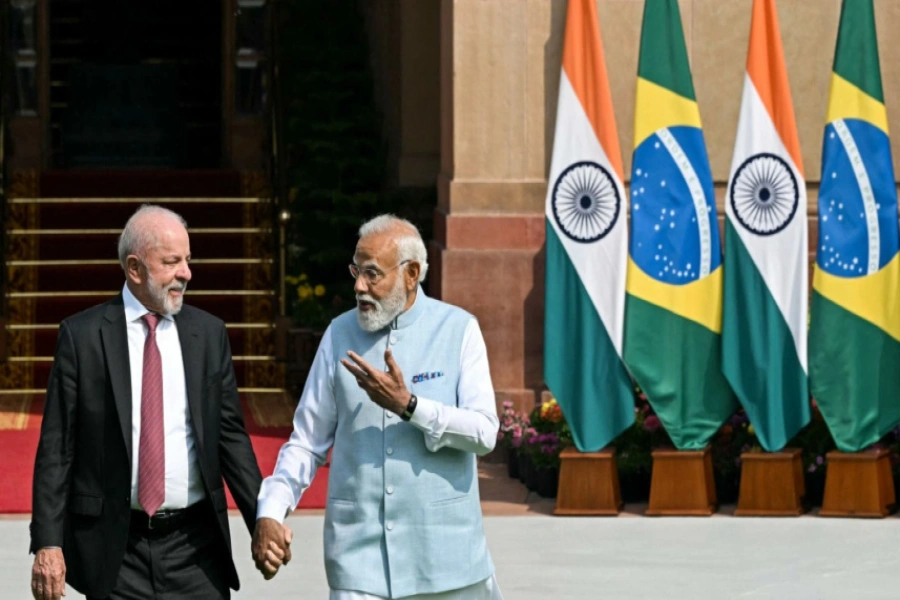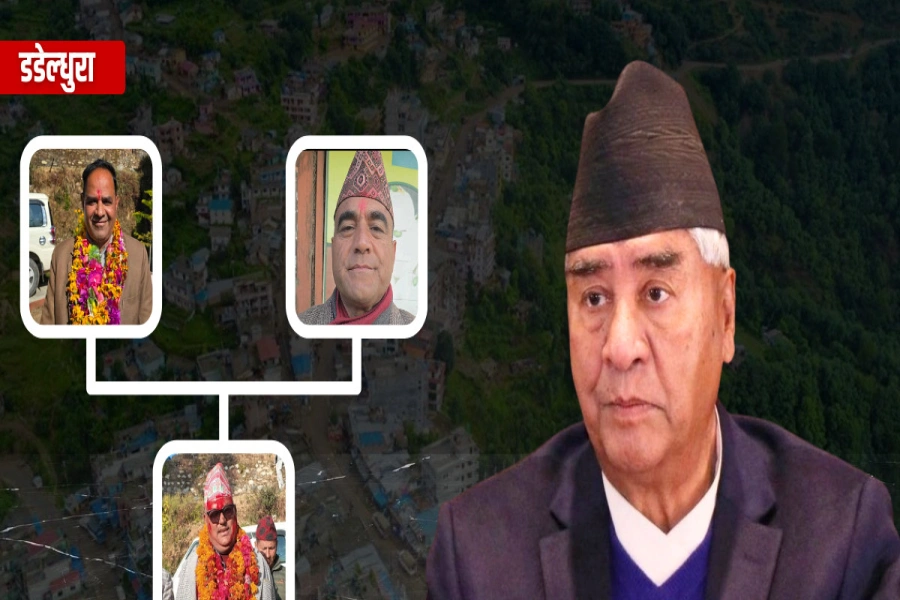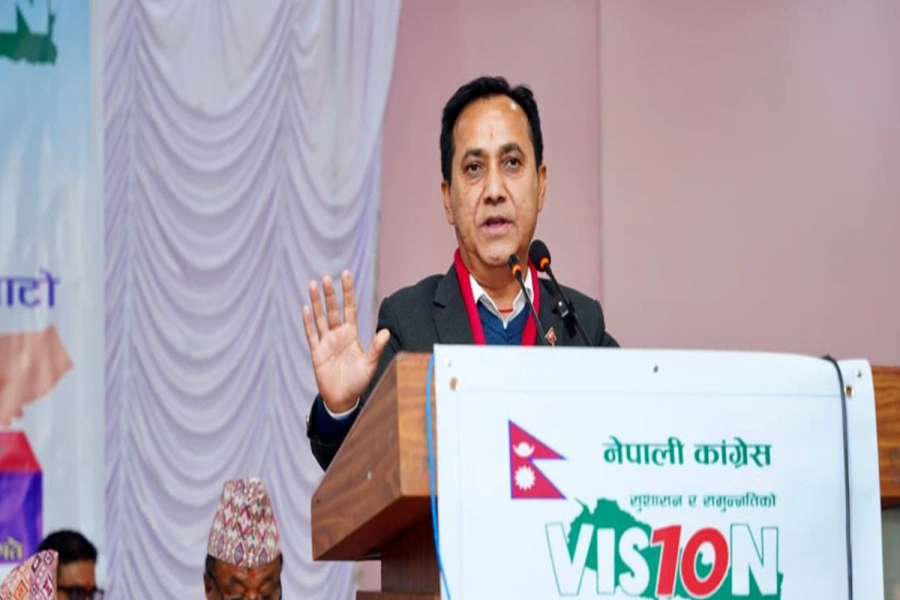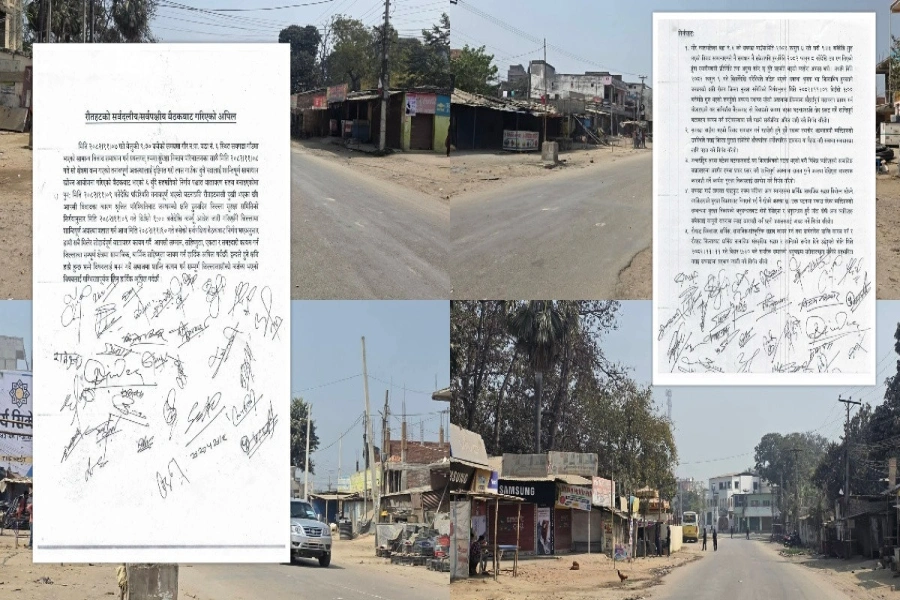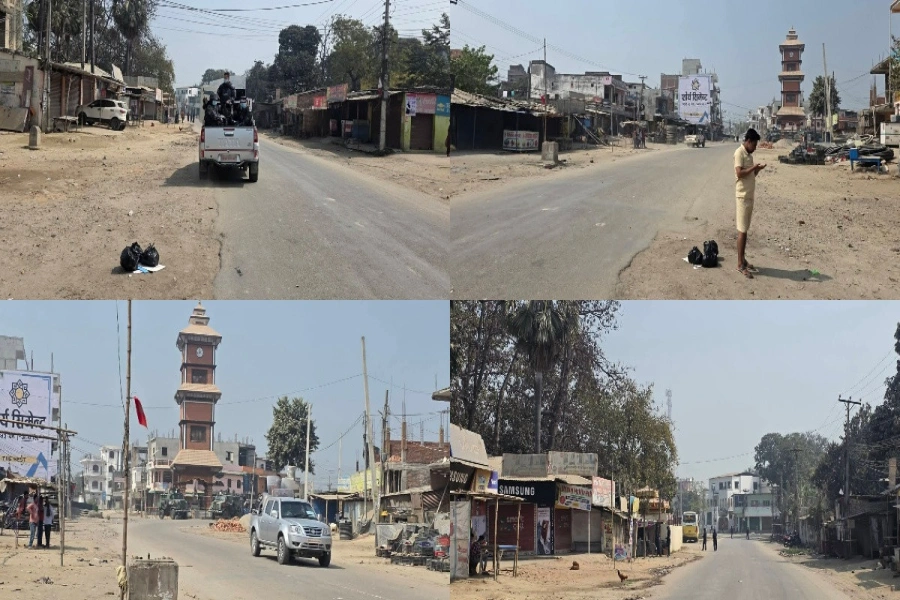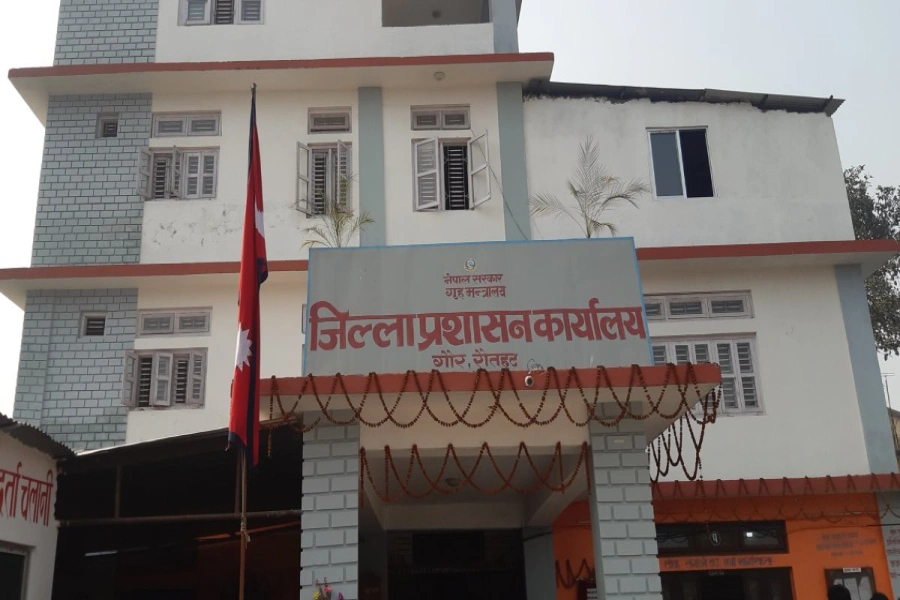Even as the Rastriya Janata Party Nepal (RJPN) sticks to the demand of constitution amendment before it agrees to take part in the second phase of local election, Upendra Yadav’s Federal Socialist Forum Nepal (FSFN) not only participated in the first phase but is also campaigning for the second phase. This decision has come under withering criticism of the RJPN and some Madhesi intellectuals. But what made Yadav, until recently one of the staunchest hardliners on constitution amendment, suddenly agree to be part of local election even without the desired amendments? Republica’s Mahabir Paudyal tries to find out in this interview.
How do we see your U-turn on local election even as your Madhesi colleagues in RJPN remain dead against election without prior constitution amendment?
Politics is an art of compromise. In politics, you cannot say this person or party deserves this; politics is rather what you get through compromises. You cannot be a true politician if you don’t know when to compromise and when not to. This also determines success or failure of your political agenda. Yes, I made a compromise with the decision to take part in local elections. But I have done this for the good of our party, our country and the people. I am not in favor of endless agitation that only invites more chaos and uncertainty.
Politics revolves around struggle, compromise, consensus, development and prosperity. Every political movement passes through this cycle. In our political history, those who have committed to never compromise and to endlessly struggle have either perished or lost their relevance. Didn’t Nepali Congress launch an armed struggle against the state in late 1940s? How did it end? With a compromise. The Maoist movement also found its resolution in the 12-point agreement. The first and second world wars also ended in compromises. The revolution or struggle that has no room for compromise has not succeeded anywhere in the world. Some Madhesi leaders project themselves as being opposed to any compromise. But they have made many compromises for personal and family gains. The compromise that my party made, on the other hand, is for the larger good of this country and the people.
But like the RJPN could you also have waited for constitution amendment before you agreed to be a part of local elections?
My life has been one of political struggle. I was in grade eight when I was first jailed. Since then I have been involved in all kinds of political movements—protests, armed struggles, Madhes movement, and so on and so forth. Now is the time to reflect on what we have gained as a result of those political movements. Federalism, republicanism, inclusiveness, identity, reservation are some major gains of all these movements. What has been achieved is not enough, but they are achievements nonetheless. The big challenge today is how to preserve the gains of those political struggles. This is our first responsibility.
The second is to stop regressive forces that have become rather aggressive in recent times. If we cannot adeptly manage the changes of past political struggles, regressive forces will be even more assertive. The third big challenge is to manage and institutionalize those achievements. Local election is the first step towards this, for it will make people their own rulers. When state power goes into people’s hands and they become their own rulers, then the gains of political movements cannot be easily reversed.
When we institutionalize people’s rule from the grassroots level, it will greatly discourage regressive forces.
What do you make of the allegation that you compromised on the bottom-line of the various Madhes agitations?
I know a lot more needs to be done to empower people. The poor and indigenous people from hills as well as those from the plains need to be economically empowered. The marginalized and dalits are still being subjected to economic oppression, even as they are politically underrepresented. They need to be liberated from the clutches of social and political discrimination. For this, the progressive forces need to consolidate their power.
You should understand my decision to take part in all three elections stipulated in the constitution in this context. The more power we have, the better we can struggle for the rights of the poor and the marginalized.
Besides, we are already among the poorest countries in the world. Economic revolution, as much as political revolution, has thus become an urgent necessity. We thus need to pursue the agendas of political and economic empowerment together so as to lead the country on the path of peace, stability and prosperity.
Rajesh Hamal enters into Jeep Life with New Jeep Compass

You sound like a political economist. Can you explain how political and economic revolutions can go together?
If we cannot take these two together, we are doomed. If we cannot institutionalize progressive changes, we will have to struggle for them again. If we cannot consolidate our power, we cannot fight for more rights. Likewise, if we cannot economically empower the people and make the country economically prosperous, conflict will increase and so will poverty and unemployment. This is why political and economic issues should get equal emphasis. Some countries prioritized only political and identity issues, forgetting economic ones. Those countries are in ruins today: countries like Somalia, Liberia and Kenya. Elsewhere, they focused only on economic development and gave less priority to political rights. As a result, the indigenous and marginalized could not enter the national mainstream. Australia is a great example of this. This is a prosperous country. But its indigenous people still live in jungles. If we focus only on political issues, we will be reenacting the famous tale of six blind men and the elephant.
We need to understand politics holistically. It will be suicidal to sacrifice national interest for petty political gains. Again we can learn from Afghanistan. This was once a prosperous and peaceful country. But Afghani leaders compromised with their nationality and national interest for petty political gains. The result is there for all to see. This is why I say national interest should be at the core of every political movement.
When did you realize that the time had come to part ways with RJPN on constitution amendment?
We and RJPN have only one issue in common: Madhes agenda. Otherwise, we are poles apart, in terms of political philosophies and behaviors. We are social democrats. And our struggle has always been for protecting national interest, promoting feeling of nationalism and national unity. This is our political goal. We aim to eliminate oppression, economic inequality and all forms of discrimination against Madhesi, Tharu, hill and plains Dalits and Janajatis, and to make the country prosperous through an economic revolution. I don’t understand what the political philosophy of RJPN is, nor do I get their economic agenda.
The problem with RJPN is that the six parties decided to come together without proper homework. And the presidents of six parties that merged also became presidents of RJPN. Now every single president in RJPN assumes he is more powerful than the others.
So I see RJPN as a stranded ship that has lost its compass. And as the dispute is over who is the legitimate pilot among the six, they have lost any sense of which direction they are sailing and why they are sailing in the first place. They cannot see far ahead.
Can you again clarify to our readers why you ditched your demand of constitution amendment before local elections?
I agree with RJPN that constitution should have been amended before the local polls. This would have created a positive vibe. The state made a big mistake by not doing so. If it had, the political situation today would be much better. We will be able to implement the constitution only when the amendment issue is first settled. This is why I call on the new government to take the amendment issue seriously. After the completion of local polls, the government should address our demands on state restructuring, and for proportional inclusive representation in political, institutional and administrative units of the state.
Diversity in language, caste, ethnicity, culture and religion should reflect in our political and bureaucratic apparatus. If we can do this, the federal democratic republic will be both stable and prosperous. Nowhere have I seen a country that is more beautiful than Nepal.
Rarely do countries have hills, mountains as well as plains. We need to capitalize on these strengths to become prosperous. Then we will be in a position to give to other countries, not beg with them. When the country becomes economically prosperous, other issues will take care of themselves.
What are your main expectations from local elections?
Local units are getting elected representatives after a long time. This will be an achievement in itself. Moreover, local government serves both as a service delivery institution and a development delivery agency. Democracy begins at the grassroots. After local elections, people will be more empowered, and more conscious about their political rights. With informed citizenry, it will be easy to preserve the gains of past political struggles. We will have our agendas endorsed by this election. This will be an occasion for us to prove that agendas of Janajatis and Madhesis are also people’s agendas.
RJPN leaders are still hesitating to take part in election. Are you confident that they will be on board?
I have been telling RJPN leaders that we should contest elections together. I spoke to Mahantha Thakur about this as well. But RJPN leaders like Thakur seem to be victims of sectarian thinking. I proposed that we should collectively defeat the forces who are opposed to Madhes agenda. When we do this, our agendas will be established. If we make emotion the basis of political agenda, Madhes movement will become weak and those who are opposed to Madhes agenda will be strong, and Madhes will lose.
Publicly, RJPN leaders do not say they will participate in election. But the majority of their local leaders are campaigning for elections. Top leaders are working on election manifestos in Kathmandu and cadres are campaigning on the ground. People are desperate to vote. But some leaders there are into sentimental politics. These anarchists have destroyed the compass of the ship called Madhes. These anarchists and over sentimental folks have made RJPN leaders hostage to indecision. I believe RJPN will take part in the second phase. Even if all constituents of RJPN don’t, the majority of them will. The majority of its rank and file is in favor of election. How long can RJPN ignore such voices?
Do you find the international community supportive of the second phase?
All of our foreign friends want stability, peace and development in Nepal. They want successful local elections, resolution of internal issues and end of conflict. They want to see their assistance percolate to grassroots level. Such is the goodwill of international community. It is us Nepalis who have failed to manage our internal politics.
It is not yet clear that new PM Deuba will be able to amend the constitution. So why did you vote for him in Tuesday’s PM election?
More than favoring Sher Bahadur Deuba, our focus was on ending a state of there being no government in the country. Pushpa Kamal Dahal’s resignation created a vacuum. That vacuum had to be filled. Deuba, for us, is not only Dahal’s successor. He is one of the signatories to three-point deal that Congress and Maoist Center had signed with us about 10 months ago. As signatories, Dahal and Deuba tried to implement that deal, though some of the issues remain. They took the amendment bill to parliament. They have given us written commitment that they will amend the bill. On this basis, we voted for Deuba. Now it is the moral responsibility of new prime minister to get the bill passed.
What are the chances of your party joining Deuba government?
We have not thought about it. We will first assess whether we will be able to work for the good of the country and the people by joining the government. But more important is to establish your values and agendas. This is my priority at the moment.



